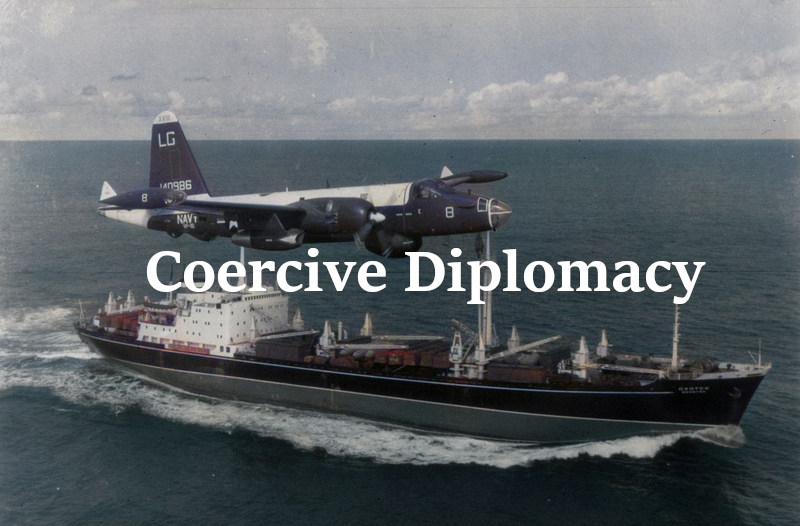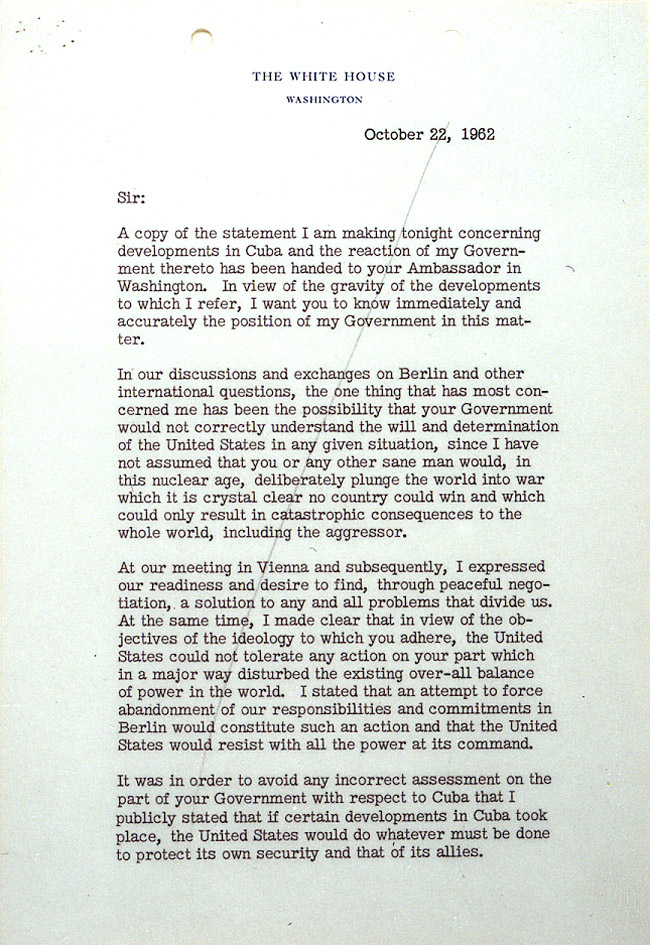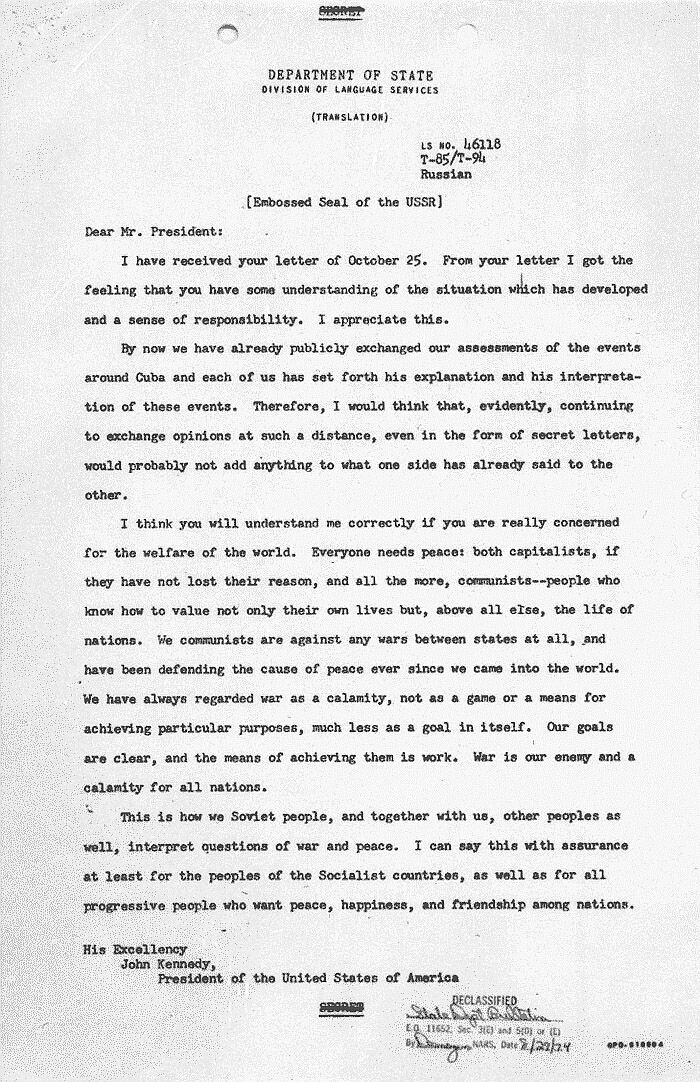
A P2V Neptune U.S. Navy Patrol Plane Flies over a Soviet Freighter, National Archives, 1962
Differences in Approach
ExComm's main approach during the crisis was gaining an advantage over the Soviet Union for the inevitable war they believed would break out. This included militaristic approaches like attacking any ship disobeying the blockade and firing at the Soviet missiles, all whilst hoping no nuclear weapons would be involved. President Kennedy, on the other hand, foresaw war could be prevented. He believed that coercive diplomacy could be used to prevent a war with the SSR by conducting a naval quarantine instead of a blockade and negotiating with Premier Khrushchev. His last resort was to attack only if the SSR attacked first.
John F. Kennedy, "White House Tapes", October 1962
"You’re talking about the destruction of a country...the logical argument is that we
don’t really have to invade Cuba. . . . [It’s] just one of the difficulties that we live
with in life, like we live with the Soviet Union and China."
John F. Kennedy, ExComm Meeting, October 1962

John F. Kennedy, "Letter to Premier Khrushchev Regarding Cuban Quarantine, October 22, 1962
Naval Blockade
The main act of diplomacy in regards to the blockade was referring to it as a quarantine instead of a blockade. This shows a firmness of not accepting the missiles in Cuba, while also not going into a full militaristic engagement. Additionally, this blockade still allowed Soviet ships to arrive in Cuba as long as they were not cargo ships and did not destroy any arriving Soviet ships, showing that President Kennedy did not want a full violent approach.
"I therefore make this proposal: We are willing to remove from Cuba the means
which you regard as offensive. We are willing to carry this out and to make this
pledge in the United Nations. Your representatives will make a declaration to the
effect that the United States, for its part, considering the uneasiness and anxiety
of the Soviet State, will remove its analogous means from Turkey."
Premier Nikita Khrushchev, Letter to President John F. Kennedy, October 27, 1962
Letter Communication
Between October 22nd, 1962 and October 28th, 1962, President
Kennedy and Premier Khrushchev maintained correspondence with one
another about the conflict through letter writing and sending their
ambassadors, Ambassador Anatoly Dobrynin and Advisor Robert F.
Kennedy to speak on their behalfs. In these letters, it is seen that President Kennedy attempts to convince
Premier Khrushchev that if the conflict continues, both nations could
descend into a catastrophic nuclear war and appeal to the humanity of the
people, all whilst maintaining persistence that the blockade will continue
until the missiles are removed and threatening military action if the SSR
attacks.

John F. Kennedy, "Letter From President Kennedy to Premier Khrushchev, October 27, 1962

Nikita Khrushchev, "Letter to President Kennedy", October 26, 1962